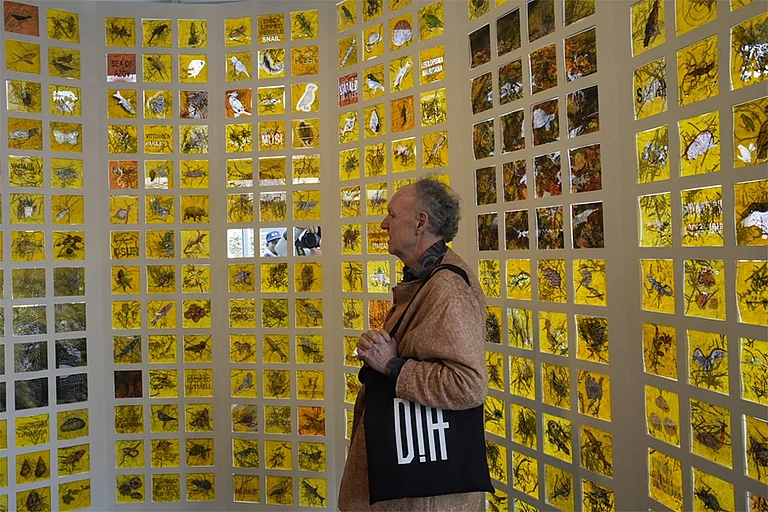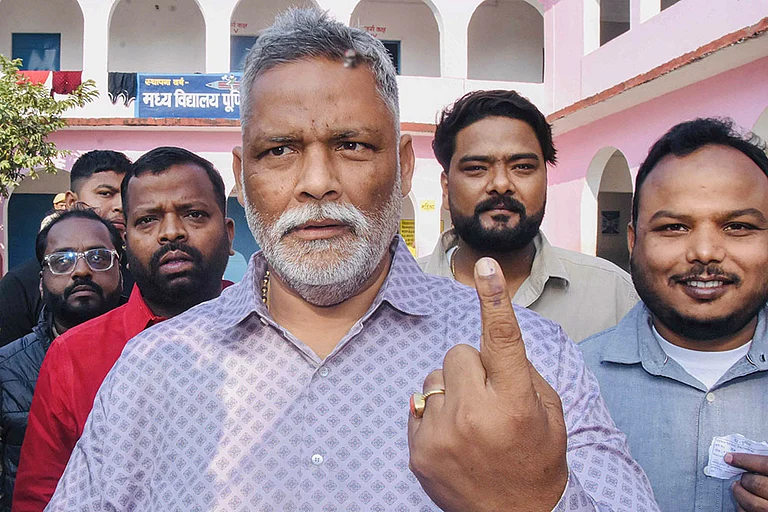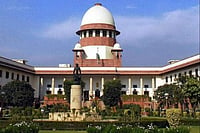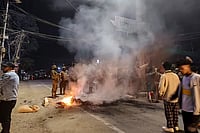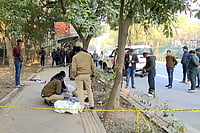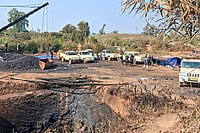He describes himself as a son of the soil. And Hata Kishore Swain, founder and headmaster of the Erbong high school, has every right to that title. The modest master, son of an illiterate farmer, has the distinction of being the first post-graduate in his village. But despite a first division in political science from Utkal University and every chance of an academic career, he preferred to return to serve the school he'd helped set up.
Hata started the school with five other locals when he realised that villages in the area had no opportunity for education beyond the primary level. And for 35 long years, he remained in voluntary exile from his family as he lived, taught and built the school. The results are quite impressive: the school serves about 25 villages and 50,000 people and has 700 students, 200 of them boarders.
As a child, Hata suffered the agony of trying to get an education in rural India. The only school in the entire area, the Gop high school, had no road links with Erbong. Only a kuccha road to Konark connected Erbong and its surrounding villages. So, to get to the school, Hata would scramble through five miles of undergrowth and streams. No other eight-year-old had the stamina to survive the daily journey. Hata's efforts later enabled him to do his graduation from scs college in Puri. It was then that the young graduate promised himself that others would get an easier education.
While still a student, he joined hands with a fellow villager, Somnath Mohanty; Loknath Sahu, a member of the village's landed gentry; and two other friends to start the Erbong school. The school began its life in the cowshed of a math. Later, they applied for long-term lease of about 16 acres of the math's barren land. Permission was granted, and in 1963 the school got a five-room thatched mud structure. Hata recounts how the rooms served as classes during the day and hostel at night. "As the school's land was a cemetery, we couldn't get any boarders at first," he narrates. Then he decided to move from his home in the village to the campus itself. There were just 11 students in class ten. But gradually the rolls swelled and in '65, five more rooms were added. However, the school still was short on funds. At first the villagers donated both labour and money but their means limited their generosity. Hata then thought of taking up cultivation to finance the school. A marshy piece of land belonging to the panchayat was drained and planted with mango, banana, coconut trees and vegetables. Gradually, the money from sales helped expand the school and buy necessary study materials.
Hata himself worked without a salary for nine years. And even though the school was in the outskirts of the village, he barely saw his parents, children and wife. In '72 things began looking up, the school began to receive government aid and Hata got a small salary. But, predictably, the salary was ploughed back into the school. Hata would wake at 4 am, conduct the drill for the boarders after which they'd work in the orchard: "Prayers, classes, school buildings - there were days when I'd suddenly realise that I hadn't set foot outside the campus."
"We believe in building the body and mind," says the headmaster. The natural surroundings and hard work in the school make for a "character building" experience. The school is also proud of having turned the wasteland of the campus into a green oasis. Life here is close-knit and the students have a good academic record of 100 per cent retention and 68 per cent pass-out rate.
The school was badly damaged during the cyclone. And Hata, who'll be ending his innings in August, is determined to rebuild before leaving: "This is a pioneering institute and has changed many lives for the better. I'm glad I contributed my bit." His address: Erbong high school, P.O. Erbong, Gop block, Puri, Orissa.








